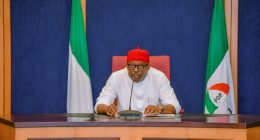
Rwanda’s economy continues to demonstrate impressive resilience and strong growth, positioning it among the strongest in sub-Saharan Africa, despite facing rising fiscal and external pressures, according to the International Monetary Fund (IMF). This assessment comes after the conclusion of the IMF’s fifth review under the Policy Coordination Instrument (PCI) for Rwanda.
The multilateral lender noted that Rwanda’s economy expanded by a robust 8.9 percent in 2024. This growth was primarily fueled by a strong rebound in the agriculture sector and sustained strength in services and construction. Inflation has remained well within the National Bank of Rwanda’s (NBR) target band of 2-8 percent, a testament to tight monetary policy and an improved domestic food supply.
However, the country’s current account deficit widened in 2024, driven by strong imports of consumer and capital goods. Despite this, Rwanda’s international reserves remained adequate, covering 4.7 months of imports by the end of the year.
Looking ahead, the IMF highlighted that Rwanda’s fiscal position will come under increasing pressure from significant infrastructure investments, notably the ambitious New Kigali International Airport project in Bugesera and the ongoing expansion of RwandAir. The recent pension reform will also add to fiscal demands. Public debt is projected to peak in the fiscal year 2025/26, with the PCI debt anchor now expected to be reached in 2033.
To mitigate these pressures and ensure long-term fiscal sustainability, the IMF emphasized the crucial need to accelerate domestic revenue mobilization and maintain a credible fiscal consolidation path. Continued vigilance is also required to manage risks associated with State-Owned Enterprises (SOEs), rising debt service costs, and constrained access to concessional financing.
The IMF stressed that monetary policy should remain data-driven to effectively contain inflation and support external adjustment. Exchange rate flexibility will be essential for absorbing economic shocks, while reforms aimed at strengthening the foreign exchange market’s functioning should persist. Close oversight of credit expansion, particularly within the microfinance sector, and improved monitoring of large exposures are critical steps to safeguard financial stability.
Program implementation under the PCI remains strong, with all quantitative targets met and most structural benchmarks completed. These include advancements in SOE governance, public financial management digitalization, and the expansion of monetary statistics. While two structural benchmarks – the Cabinet approval of a comprehensive tax policy package and the rollout of the Global Master Repurchase Agreement – were implemented with a delay, the authorities are continuing to build upon the strong foundation established under the now-completed Resilience and Sustainability Facility (RSF).
Furthermore, Rwanda has shown strong progress in climate-related reforms, including efforts to implement a climate budget tagging system, develop green taxonomies, and advance the climate finance agenda. The IMF emphasized that developing a robust pipeline of viable, bankable green projects will be key to fully leveraging available resources and sustaining this momentum.
Mr. Bo Li, IMF Deputy Managing Director and Acting Chair, lauded Rwanda’s impressive economic resilience but acknowledged the increasingly complex macroeconomic environment. He underscored that “sustaining fiscal consolidation remains vital to preserving macroeconomic stability and ensuring debt sustainability.” He also welcomed the recently adopted tax reform package as a positive step towards broadening the tax base and enhancing equity and efficiency. Li concluded by stating that continued commitment to reform and strong engagement with development partners will be critical to supporting Rwanda’s ambitious development agenda.








